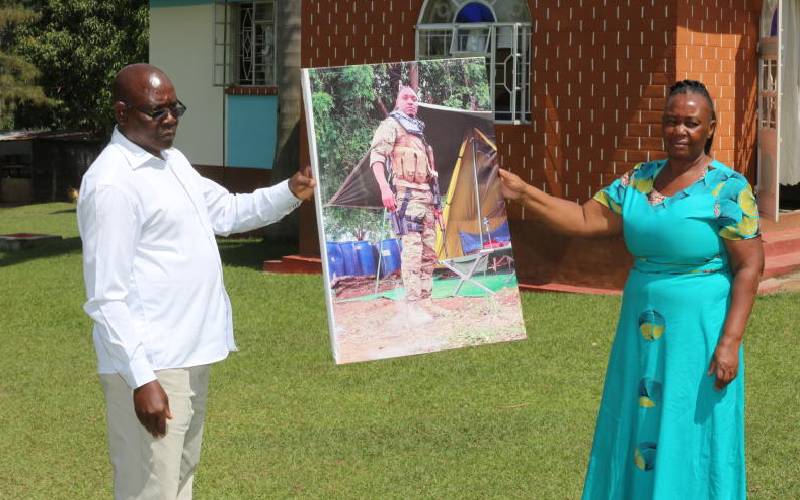×
The Standard e-Paper
Fearless, Trusted News

Charles Mukoshi and Agness Khayenge parents of National Intelligence Service officer Enoch Irungu Mukoshi who was among several Kenya Defense Force officers who were hit by an improvised explosive device assembled by Al-shabaab in Lamu recently. [Benjamin Sakwa,Standard]
On May 5 this year, Enock Irungu Mukoshi officially introduced his wife-to-be to his parents at Ebukhai village in Eshisiru location, Kakamega Central sub-County.